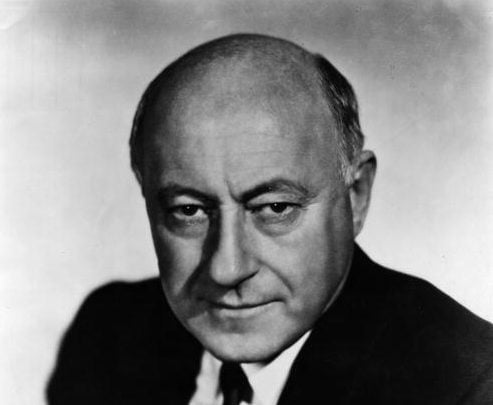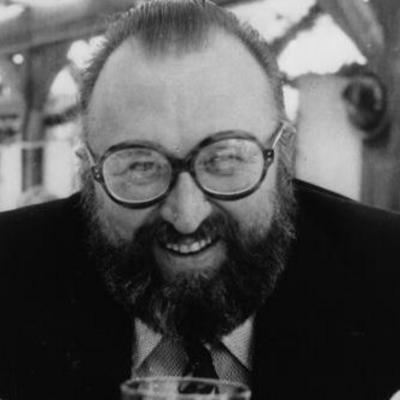What is Cecil B. DeMille's Net Worth?
Cecil B. DeMille was an American film director and producer who had a net worth equal to $50 million at the time of his death after adjusting for inflation. In roughly five decades, Cecil made 70 feature films spanning the silent era in the mid 1910s to the sound era through late 1950s. Known for co-founding Paramount Pictures and making flamboyantly epic dramas, he directed such hit films as "Samson and Delilah," "The Greatest Show on Earth," and both the silent and sound versions of "The Ten Commandments." In 1952, DeMille was the inaugural recipient of the Cecil B. DeMille Award at the Golden Globes, so named in his honor. DeMille also won two Golden Globes and was awarded two stars on the Hollywood Walk of Fame in 1960.
LA Mansion and Estate Plan
Cecil B. DeMille passed away on January 21, 1959 at 77 years old. According to the terms of his will, Cecil left his lavish LA mansion and the majority of his other assets to his one biological daughter, Cecilia, cutting off three adopted children. His surviving wife lived at the mansion for the next year until she died as well. His adopted children were reportedly stunned to learn that they were cut out of his will. Cecil apparently did not treat them differently than his daughter in life.
In June 2017 Angelina Jolie paid a neighborhood-record $24.5 million for the 2-acre, 11-bedroom estate. The mansion was built in 1913 and acquired by DeMille a few years later for $58,000. That is the same as $1.4 million today after adjusting for inflation. The house traded hands a few times between his death in 1959 and Angelina in 2017.
Early Life and Education
Cecil B. DeMille was born on August 12, 1881 in Ashfield, Massachusetts in a boarding house where his parents Matilda and Henry were vacationing for the summer. His mother was a writer and actress, while his father was an actor, professor, and businessman. DeMille was of English, Dutch-Belgian, and German-Jewish descent, and had an older brother named William. The family lived in Washington, North Carolina for a while, and then moved to Pompton Lakes, New Jersey, where DeMille's father built a three-story Victorian-style home. DeMille's sister, Agnes, was born in 1891; she passed away three years later from spinal meningitis, one year after the kids' father died from typhoid fever.
DeMille was educated at Pennsylvania Military College and the American Academy of Dramatic Arts. Upon his graduation from the latter in 1900, he performed in the play "The Arcady Trail." In the audience was theater manager Charles Frohman, who would help launch DeMille's career in theater.
Career Beginnings in Theater
Thanks to Charles Frohman, whose theatrical company he joined in early 1900, DeMille made his Broadway debut in Frohman's play "Hearts Are Trumps." He went on to star in productions of "A Repentance," "To Have and to Hold," and "Are You a Mason?" In 1905, DeMille joined the stock cast at the Elitch Theatre in Denver, Colorado, and appeared in numerous plays that summer. He later began collaborating with his brother William, who had become a playwright. DeMille also ventured into playwriting himself, as well as directing and producing plays by other writers. However, he was largely unsuccessful, and struggled to find work after a while. Because of this, DeMille was hired by his mother to work at her theatrical agency. In 1911, he met vaudeville producer Jesse Lasky, with whom he created the hit musical "California."
Start of Film Career
Tired of theater and wishing to work in the fledgling film industry, DeMille partnered with Lasky, Sam Goldfish, and a coterie of East Coast businessmen to create the Jesse L. Lasky Feature Play Company in 1913. DeMille became the director-general of the company, and co-directed his first film, "The Squaw Man," with Oscar Apfel. Released in 1914 as one of the first feature films to come out of what is now Hollywood, "The Squaw Man" was a sensation that put the Lasky Company on the map and eventually led to the founding of Paramount Pictures. DeMille reunited with Apfel to co-direct "Brewster's Millions," which was also a hit; the pair also directed "The Ghost Breaker." By 1915, DeMille had directed 20 films, with some of the most notable being "Rose of the Rancho," "The Warrens of Virginia," "The Cheat," and "The Captive." In the summer of 1916, the Jesse L. Lasky Feature Play Company merged with Adolph Zukor's Famous Players Film Company to become Famous Players-Lasky.

Getty Images
Silent Successes in the 1920s
In the 1920s, DeMille became the most successful director in the American film industry. With his first Biblical epic, the smash 1923 silent "The Ten Commandments," he established himself as a master of ostentatious, large-scale historical films. DeMille continued to cement his reputation with such films as "The Volga Boatman," "The Road to Yesterday," "The Godless Girl," and the Jesus biopic "The King of Kings." However, he also courted controversy for his extravagant style and depictions of immorality, raising the ire of Christian groups. This contributed to the creation of the Hays Code and its notorious censorship rules.
Film Career in the Sound Era
With the introduction of sound to cinema in the late 1920s, DeMille made a successful transition thanks to his technological innovations, such as a soundproof camera blimp. His first three sound films, "Dynamite," "Madame Satan," and his remake of "The Squaw Man," were produced by MGM. They were unsuccessful, prompting DeMille to take some time off and travel abroad. He returned to Hollywood in 1932 to make the epic "The Sign of the Cross" for Paramount. DeMille subsequently directed "This Day and Age" and "Four Frightened People." One of his greatest successes of the 1930s was the 1939 Western "Union Pacific," a collaboration with the Union Pacific Railroad. He followed that in 1940 with the Technicolor Western "North West Mounted Police." In 1942, DeMille had great success with the adventure film "Reap the Wild Wind," which featured many groundbreaking special effects. He made another special effects extravaganza with 1947's "Unconquered." DeMille finished the decade with the Biblical epic "Samson and Delilah," which became Paramount's highest-grossing film to that point.
In 1952, DeMille directed the circus drama "The Greatest Show on Earth," which became Paramount's new highest-grossing film ever. The film ended up winning the Academy Award for Best Picture, with DeMille receiving his first and only nomination for Best Director. His next film would be the final film of his directing career: his 1956 remake of "The Ten Commandments." It was also his first widescreen film. The longest and most expensive film in Paramount's history, the Charlton Heston-starring epic became one of the highest-grossing films of all time, and earned seven Academy Award nominations, including Best Picture.
Other Endeavors
DeMille was involved in various other endeavors beyond the world of film. During the 1920s, he opened the Mercury Aviation Company, one of the first commercial airlines in the United States. DeMille also did real estate speculation, underwrote political campaigns, and served as the vice president of Bank of America. A conservative Republican, he did activism against unions and donated heavily to Herbert Hoover. DeMille also did radio, producing, directing, and hosting "Lux Radio Theater" from 1936 to 1945. Broadcast on CBS, it was a weekly digest of current films that became one of the most popular weekly shows in radio history. Among his later endeavors, DeMille helped design the cadet uniforms at the newly created United States Air Force Academy.
Personal Life and Death
In 1902, DeMille married actress Constance Adams. Although they never divorced, the two were reportedly sexually incompatible, and Adams permitted DeMille to have a number of longterm mistresses during their marriage. Despite the turmoil behind the scenes, the couple maintained the appearance of a happy marriage, and had four children, three of whom they adopted.
DeMille struggled with his health for periods of his life. In 1938, he underwent an emergency prostatectomy and had a severe post-surgery infection. Later, while filming "The Ten Commandments" in Egypt in 1954, he had a serious heart attack. Several more heart attacks followed. In January of 1959, after another attack, DeMille passed away. He is interred at the Hollywood Memorial Cemetery.








